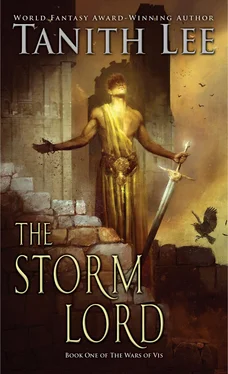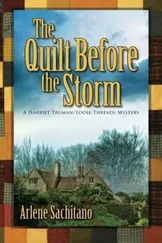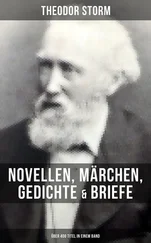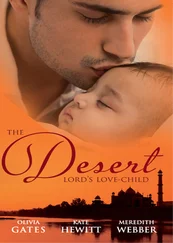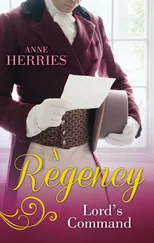There was talk and superstition after. They shouted among themselves and set their sorcerers to work. But the storm had come and gone. They provided an aftermath with no meaning.
“How can one man communicate with so many merely by use of his brain?” The Vathcrian, who had spoken of the pickings of Vis land, wondered, hushed, “Is he then a god? Look at them argue.”
“Let them. Their decision’s made. He made it. Beasts that run to the sea to drown themselves may discuss what they’re doing on the way, but the sea still has them.”
In the sanctuary the old priest sat with his serpent staff across his knees. He too, with all the rest, had felt the solitary brain command his own. But with his inner knowledge and the harsh training of his calling, he had seen, too, into the depths of Raldnor, known the past, the desolation, guilt and pain, now set aside forever, but marked indelibly, like deep scars.
“We ask: is he a god, that man?” the priest thought. “But lie is no longer anything we know to put a name to. He has found his soul but lost his self. Raldnor, or Raldanash in the myth. He said his mother was Her child—Yes, I saw her. She had Her face. And his Lowland race I saw so clearly in my mind when he conjured them. Across great seas, yet they worship Her—How can this be? A strange race, asleep now, but he will wake them. And he is theirs, an emanation of his people. No longer a man, but a collective being. Yes, that is what he is. Not king or god, but essence, expression.”
The staff twitched in his hands. He smiled but not enough to stretch his narrow mouth. He had practiced the illusion so often that now it seemed sealed in the wood. The staff believed itself a snake. This was how he explained the phenomenon.
Outside, the day gathered itself and fell away. He sensed them alter course and begin to persuade themselves to the direction they had already had chosen for them.
“But whatever he is, have we ever known such power?” the priest thought. “How can we contain it? At some time the fight will finish. Will he simply burn away then, like the magic tree? What then can turn him back into a man?”
Summer was descending from its golden summit at Pellea when the three kings came there with their households, and the lords of their holdings and their towns. They came for their several reasons, with their several curiosities, fears and impatience. They spoke with Jarred, and stared at the dark-haired man and the dark-haired women walking in their elegant Vathcrian clothes. It seemed the stranger, Raldnor, had taken his demands to barbaric Shansar, and had been gone two months of the Vathcrian calendar.
“You’ve lost him,” Klar said. “The sorcerers have eaten him up, and good riddance.”
Yet Jarred was not the youngster he recalled; here was poise now, and calm, alongside the good looks. Klar noticed, too, how Sulvian was.
“She fancies the stranger-King, whoever he is,” Klar mused. “She’ll cry if he doesn’t come back.”
Klar had been at Pellea two days when the sentries rode down from the hills. They had seen riders on the upper passes—Vathcrian livery and arms, a white-haired man at their head, at back some two hundred Shansars on skinny marsh horses. Klar concluded the stranger was bringing down an enemy force to overwhelm the civilized men of the south. He called for action, but got only one. Ezlian of Vardath laughed at him—not rudely but affectionately, which was worse. He dragged his own few men into shape. When the force appeared on the Pellean plain four days later, he rode out and challenged them. And then his skull seemed full of things—bright, amorphous, pleasing things. It was like some drug. Klar was reminded irresistibly of that brother he had mind-spoken with, and grit tormented his eyes. He pushed emotion from him and stared at the stranger.
“I see you’re all they said. You were well suited where you went—the land of magicians. And you’ve brought your brothers with you, by Ashkar.”
But he rode with Raldnor, side by side, into Pellea. Something had touched him, touched him in a deep way, yet he was soothed.
The assembly was formed in the morning.
The five Shansarian Kings who had come with Raldnor from the lakes sat ranked behind him, grim-faced. It was clear they had assumed their stand already. The Vathcrians had spoken of a vast communion, mind with mind, on the beacon place of Shansar, but if any were alarmed or welcomed that here, it did not come. Raldnor spoke to them as a prince, cleverly, and fairly. He made them see what was to be gained—but also what might be lost if ever men of the dark races found them, men more willing to make war than they.
“Not so much a mystic as you hoped,” Klar said, “eh, Lady Ezlian?”
“We have already had our omens,” she said. She had spoken with Raldnor a long while as they walked with Sulvian in the old ruined gardens of Pellea’s crumbling palace. Snakes and vermin had lurked everywhere, Klar supposed, but that would hardly have troubled those three.
At dusk the torches in the ancient hall were lit. Light flared on hollow eyes and silent faces.
“What you ask, Raldnor of Vis, is immeasurable,” Sorm of Vardath said. “Not merely in terms of battle or of supremacy. I ask you only what we lose when we bow utterly to you?”
Ezlian rose. She lightly placed her hand on Sorm’s shoulder.
“If you are to lose anything, my lord, then it’s already lost.”
Jarred also rose.
“I put my force of arms at disposal of your will, Raldnor, King. I pledge you here and now that your battle is mine.”
Sorm said: “This woman at my side speaks for me. Count me your captain, Raldnor, King.”
Klar glanced about. He caught suddenly the dark eye of the black-haired man seated at Raldnor’s right hand, the one they called Yannul.
“You,” Klar bawled, “what’ve you to say when this fellow traveler of yours takes us off to pillage your racial kin?”
“My sword arm is Raldnor’s,” the man said, “as will be the sword arms of several of my countrymen. None of us are kin to the Dortharians.”
“Then, damn you,” Klar said, “I’ll take my chance with the rest of you. That’s the best omen of all when wolf eats wolf and swears it’s jackal.”
In the dark Sulvian walked about the garden, where fireflies reflected in the stagnant pools. Beside a broken urn she paused, sensing the quiver in her thoughts, then turned and saw Jarred.
“You shouldn’t roam about unescorted,” he said.
“Oh, here it all seems very safe. So old and so peaceful. I’m glad that you spoke first with your mind to me.”
“I’m rusty. It will improve, I expect. Klar’s still planning his campaign with Urgil of Shansar, discussing Jorahan’s sea routes. The lower halls are in uproar. It seems they like each other because they can both hold their beer. We must start the levies. Odd that our men will fight so willingly.”
“You understand why,” she said.
“And you,” he said, “are you happy, my sister?”
“Happy?” The intermittent fireflies spangled her hair. “Happy, do you mean, because I shall be betrothed to him, married to him to seal the alliance between his land and ours? Happy, perhaps, that I resemble a woman he once loved?” Jarred was silent. She said: “Oh, I know he will be kind to me. I know he will give me pleasure—that I shall bear his child. Somehow I see all this. I see, too, that he can’t love me. It would be impossible. He is beyond love. I shall be the wife of a demon, as if in a story.”
“But,” Jarred said, “you love him.”
“Yes. Of course. I shall never love anyone else now. He made me into that other woman—Anici. He reincarnated her in my flesh. It wasn’t intended; it simply happened when I saw myself in his mind.”
Читать дальше
